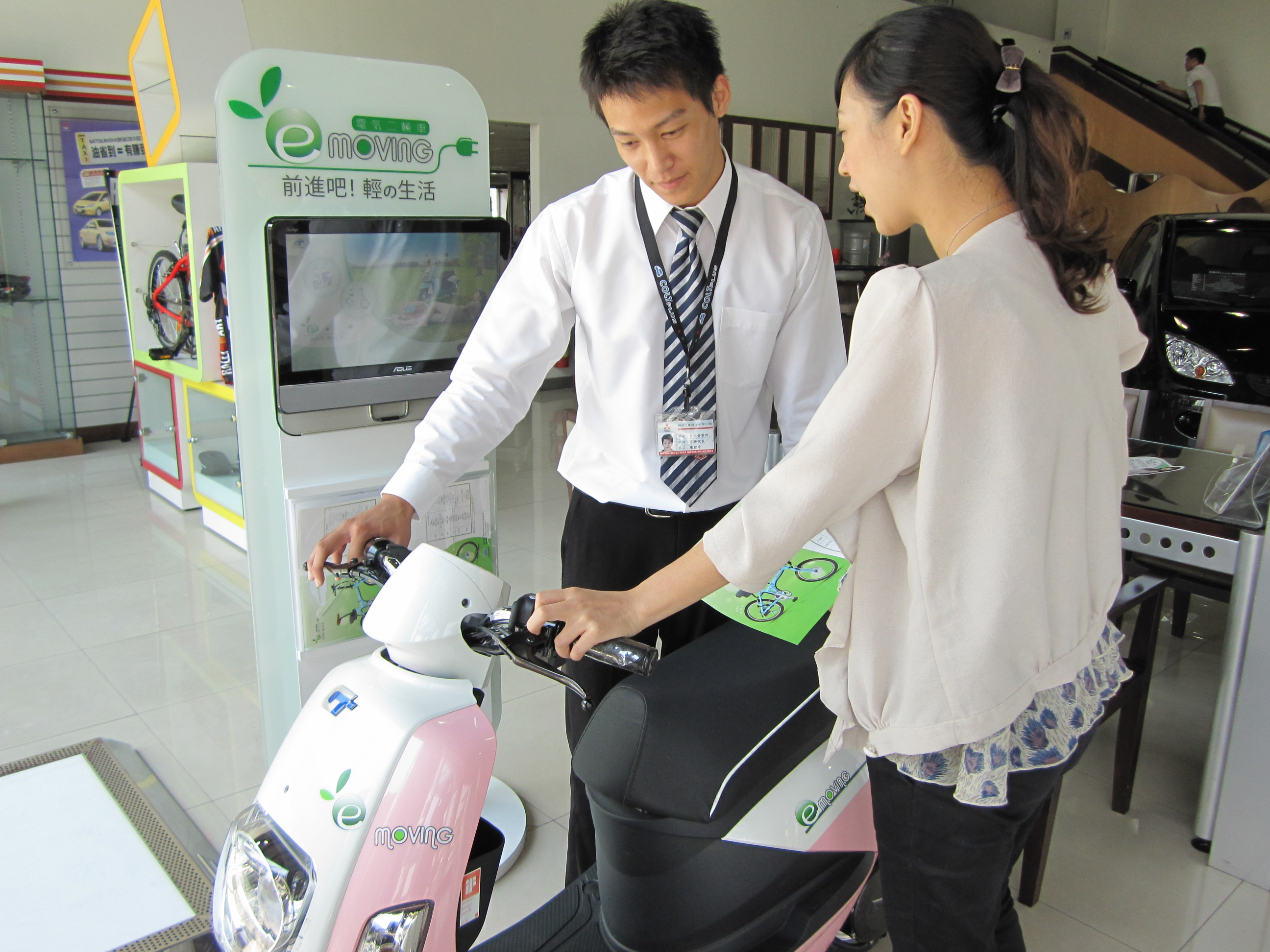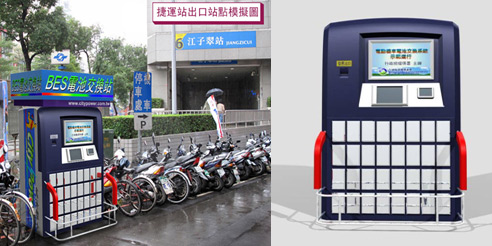First TES to Pave Wider Road for Li-ion Battery Driven e-PTWs in Taiwan
2013/12/19 | By Quincy LiangThe government in Taiwan has had very limited success in promoting electric two-wheelers over the years, despite its well intention to replace more gasoline PTWs with such greener bikes to reduce noise and air pollution. Such electric vehicle (EV) promotion policy makes sense since most electric bicycles (e-bikes) and electric scooters (e-scooters) are powered by conventional lead-acid batteries that are eco-hazardous.
The lithium-ion battery, which features much higher power and energy density, as well as longer life and more recharging cycles than lead-acid counterparts, has become a top target for Taiwan government's subsidies for promoting e-bike and e-scooter adoption.
Pivotal to more efficient development of the e-scooter industry is a well-established standard, with which the government can set up industrial development strategies, subsidize qualified products and makers, and develop the market by encouraging product innovation and advancement. With the e-scooter market and industry being relatively new to private companies, unifying industrial standards can effectively shorten R&D time and identify proper directions for product and business development, especially the lithium-ion battery packs.
First E-Scooter Testing Standard
The Taiwan E-Scooter Standard (TES) has been established by the Industrial Development Bureau (IDB) of the Ministry of Economic Affairs to protect consumer rights when buying useful, eco-friendly powered two-wheelers (PTWs), along with a comprehensive set of testing standards for e-scooters, the first of its kind globally.
With the TES, the government also launched a thoughtful subsidy program to create demand to put 100,000 e-scooters on roads in four years (2011-2014), including subsidies for consumers, reward for manufacturers, and subsidies to construct recharging facilities.

The TES testing works are jointly manned by Taiwan's Automotive Research & Testing Center (ARTC), Material and Chemical Research Laboratories (MCL) under Industrial Technology Research Institute (ITRI), and Electronics Testing Center (ETC), to assure durability, cruise range, hill climbing capacity, acceleration, and lithium-ion battery safety. In addition to passing TES tests, the IDB also requires all the e-scooter makers to provide repair and maintenance, roadside assistance, recharging etc. services, to offer all-round rider-friendliness on the island.
According to the IDB, the TES certifies e-scooters that meet required parameters, including vehicle type approved by the Ministry of Transportation and Communications; adoption of detachable lithium-ion battery pack; nominal 48V battery pack; BMS (battery management system) to show temperature, voltage, residual capacity, abnormal signal, recharging cycles, and battery identification to be recorded and readable; approved performance and safety specs; and business operation plan subject to approval (including projected sales volume, detailed vehicle performance, battery specification etc.).
Lithium-ion EraThe TES, including the subsidy program offered by government, as well as a newly promulgated certification method for common-standard lithium-ion battery exchange system and a scheduled pilot project for setting up a network of lithium-ion e-scooter battery exchange stations in New Taipei City in northern Taiwan (the most populous city on the island), are all expected to drive the e-PTW industry in Taiwan into a new era of "powered by lithium-ion battery".
Aiming to qualify under the TES, e-scooter makers in Taiwan are focusing on production of models powered by lithium-ion battery packs, also applying for TES certifications to qualify for the government subsidy program. Meanwhile rapidly increasing rider feedback has been shortening the learning period of both e-scooter makers and lithium-ion pack suppliers, hence effectively upgrading maturity of the lithium-ion battery segment.

To further raise adoption of the battery exchange systems, the EPA has also announced inclusion of e-bikes into the service. The Administration says that it will subsidize more qualified lithium-ion battery e-bikes, and will soon announce the common standards for e-bike battery packs compatible with the battery exchange systems. The government will also subsidize battery-exchange spending of users to popularize electric two-wheelers to save energy and reduce carbon emissions.
Improving charging and swapping infrastructure for lithium-ion battery packs is also expected to motivate local e-scooter and -bike makers to focus on developing models for the new type of batteries, while upgrading technologies in line with lithium-ion batteries.
The governmental policy aims to build a landscape in which all types of electric two-wheelers are powered by lithium-ion batteries, as well as promote development of higher-end electric two-wheeler products, industry sources say, which will also help local makers gain global competitiveness sooner. (QL)




